Gaming highlights from the last sixteen months
These are the weeknotes1 on the games I’ve played since I last wrote up my weeknotes…. about sixteen months ago I think. These are highlights of the games I’ve played that either were particularly notable, or are a strong recommendation for or against playing them.
I’ve divided up the short reviews and thoughts into fairly arbitrary categories below:
And yes, I really should get into the habit of writing up notes as I go along - which I’ve started doing with Chestnut Lodge Wargaming Group games, I’ve included links to games I played there below.
Notably good recreational games

Oxenfree.
Oxenfree
I’m going to start with the game that probably affected me the most… but also that I don’t want to say too much about, because I think you should give it a try. You can find it on all sorts of platforms now, including Netflix.
So I’m just going to bullet point some thoughts here:
- I liked the realistic characters, with likeable and dislikeable aspects to their personalities.
- The voice acting was incredibly good, and potentially an illustration of how far AI has to go beyond “it’ll do”.
- The ending I experienced was disappointing, and felt constrained by the genre of the game, or by how quick one playthrough could be, rather than suiting the narrative.
- There were weird stops in choices sometimes, or Ren and Nona would just vanish inexplicably. I don’t think that was intentional.
- I realise this is a little “enigmatic” if you haven’t played the game, but the tuning mechanic was easy to do but also a nice touch.
- I liked the pace of it, and that sometimes you just had to spend some time traveling a significant distance, without ever feeling like you were stuck in a Halo or Resident Evil like situation where what the two items you need are always at the very edge of how big a map your device can handle.
- I wish it had been a “choose your own outcome” book, if only so I could see where other choices would take me.
- And most notably for me, the music was very well done, and very atmospheric without being intrusive. I can count the video game soundtracks that are meaningful to me on one hand, and this is one of them.
I did start the replay, but that was some time ago and I’ve not picked it up since. There were nice touches to indicate that this wasn’t the first time I was playing this, and that the characters potentially knew that too. But I’ve a feeling that the freshness of the choices is what kept me enthralled, I’m not sure I want to play it just to try and make different decisions - where the pace and atmosphere is in the way, rather than central to the experience.
I forget at what time of day I started playing this, something like 8PM - planning to save progress once I’d reached a suitable point, or I’d got the general idea of how it worked from a game design perspective. I think I stopped playing at about three in the morning.
Steamworld Heist

Steamworld Heist has a great art style.
A relatively simple 2D strategy game, imagine something easier and more charming that the XCOM series. You play a group of steam powered robot pirates… which works well, the world-building is good, especially as the scenario is played “straight”, there’s no irony or wackiness.
There’s just enough not to feel railroaded, both in the overall scenario and especially in each mission, which involves entering a spaceship and killing as many occupants as needed to loot it, or similar objectives. As these are robots, and the concept of death is vague - you can usually rebuild your deceased crew for example, the game works if you’re around younger children, or don’t want an out and out “murder sim” for a change. The procedurally generated ships sometimes feel very procedurally generated, but overall they tend to work, and that method makes them unpredictable if you repeat missions.
Something I pick up and play incredibly sporadically, say every few months, but can quickly get back into. So if you’re a time-poor adult who can snatch an hour or so between other commitments do look this up on your preferred platform.
Vampire Survivors
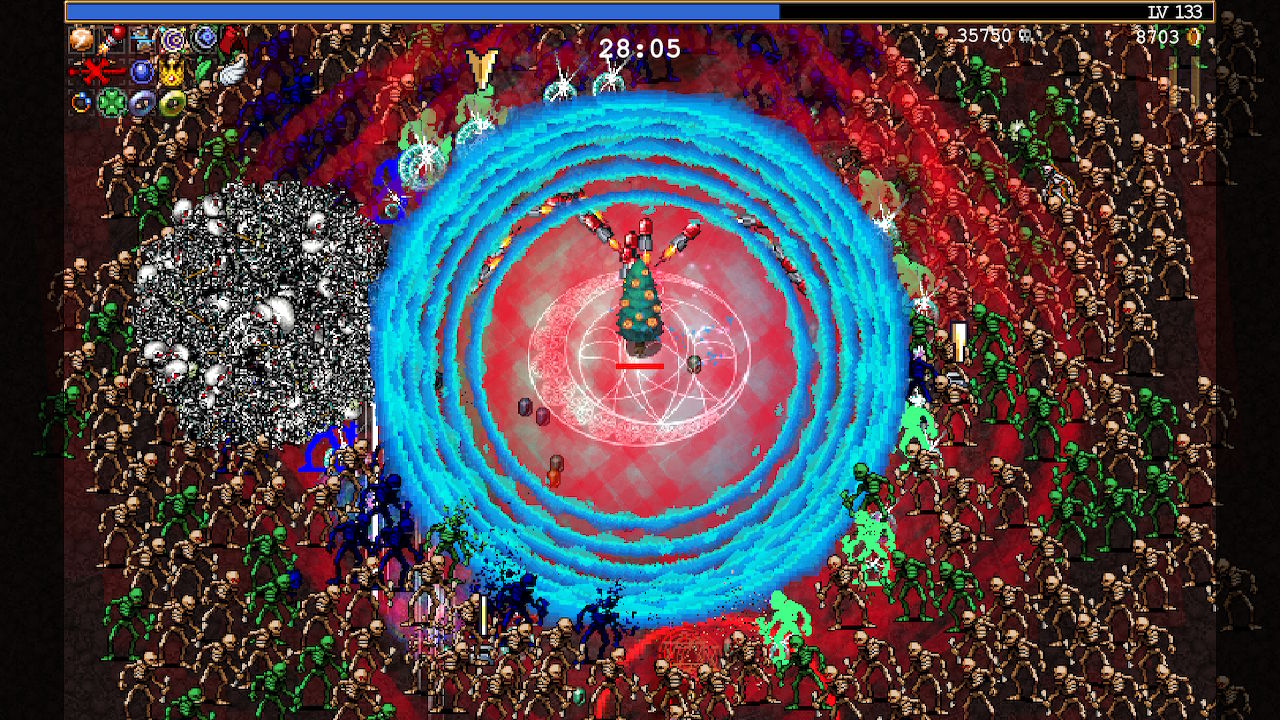
You don't have to be a tree, but you can be.
A year or more after everyone else, I finally see what the fuss is about. This game is amazing for creating a state of flow - you can never really relax while playing it, but also it doesn’t punish momentary lapses in attention. It’s a great video game to play in bite sized pieces.
If you want a cheap distraction this is undoubtedly available on whatever platforms you have to hand.
Professional Games and Wargames
A Thing With A Company About Stuff
I was involved in a professional game that was essentially an iterative set of surveys. We were evaluating the use of a product within a cyber security environment, and there were about twenty or so players. While we were all on the same “side” in the scenarios presented we each provided feedback on the scenario using online forms. That feedback then influenced subsequent conversations and questions, although this wasn’t a “decision and consequences” iteration as you’d expect from a more standard wargame.
I just mention it obtusely here because I think this was a really interesting format. I think it made the best use of the variety of experience of players present, as well as ensuring that their points of view were heard, as well as working in a hybrid meeting. While I tend to advocate, by default, for wargame-like methods over less useful “exercises” - which can become tabletop meetings of everyone involved telling everyone else involved that everything will be fine - it was good to see a format that stepped away from a BOGSAT2 in a different way, and was so useful.
This related to a air-gap themed cyber security product, which I might be discussing on LinkedIn around the time that you’re reading this.
Agenda: The Game Of Meetings
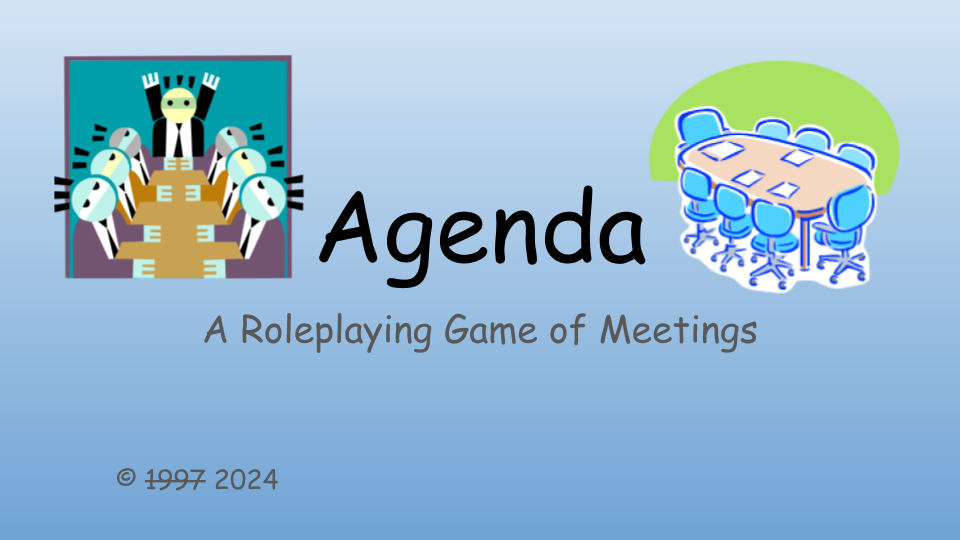
When were you last in a properly structured meeting?
Something I played as part of belonging to the Meeting Innovation Community (MIC), this is a recording of that session. There’s a good description of the game on itch.io, where you can buy it too.
An interesting game about meetings, and although I only knew the designer, Chris Butler, at the time - I warmed to the MIC by how easy it was to jump into a role-playing situation with two strangers, thank you to Elise/Starshine and Eileen/Sally Sue.
I enjoyed the game, and I liked the way it made the players think about their natural behaviour in meetings - I’m very much “black hat” in Edward de Bono’s definitions3, but for this game I rolled as a yellow, so that forced me to think in a different way. Similarly the game was good for enumerating different meetings types, rather the kind of mass but formless debate that they usually are. For example, using the Lean Coffee approach showed how good it is to get ideas out of everyone if you work silently for a couple of minutes and write them down individually
If you’d like better meetings within your organisation then you can join the community here.
Right Angles to Reality playtest
I kind of popped into this playtest around another meeting I was scheduled to be in, so saw the beginning and the end. The way it’s run is based on a very interesting idea, running a megagame with Control4 in each location having the bare minimum of information, using a “Fighting Fantasy” style method for stepping from one part of the scenario to the next. This means that you don’t have to brief everyone in Control with the entire scenario, and keep all the facilitators of the game synchronised during the event. Discrepancies can be covered by the Game Control running the whole thing, or they don’t matter, or they will be so minor that the players won’t notice anyway.
You can see the introduction to the game on the Megagame Makers website.
It reminded me of the extremely large D&D game I saw details of a while ago, well over 1000 players filling a mall in Utah. I did contact the organisers because I’m interested in how their game works, but never received a reply. If you’ve got a connection to them somehow, please do let me know - you can find me using the icons on the very top right of this page.
The Desperate playtest
This deserves far more than I’ll say here, but an interesting game to play hybrid5 - because I think that sense of isolation was beneficial to the theme of the game, of being incarcerated. Also good to play it as an English translation of a Polish game.
This was particularly grim, and is the reason I need to get much better at putting up posts on the Chestnut Lodge Wargaming Group blog.
Evivve
Gamitar’s Evvive is a really intriguing game, putting a small group of players together to harvest resources to earn money to buy a mine to obtain biominerals to give to scientists to evolve before the Earth becomes a “methane planet”, rendering human existence on Earth impossible.
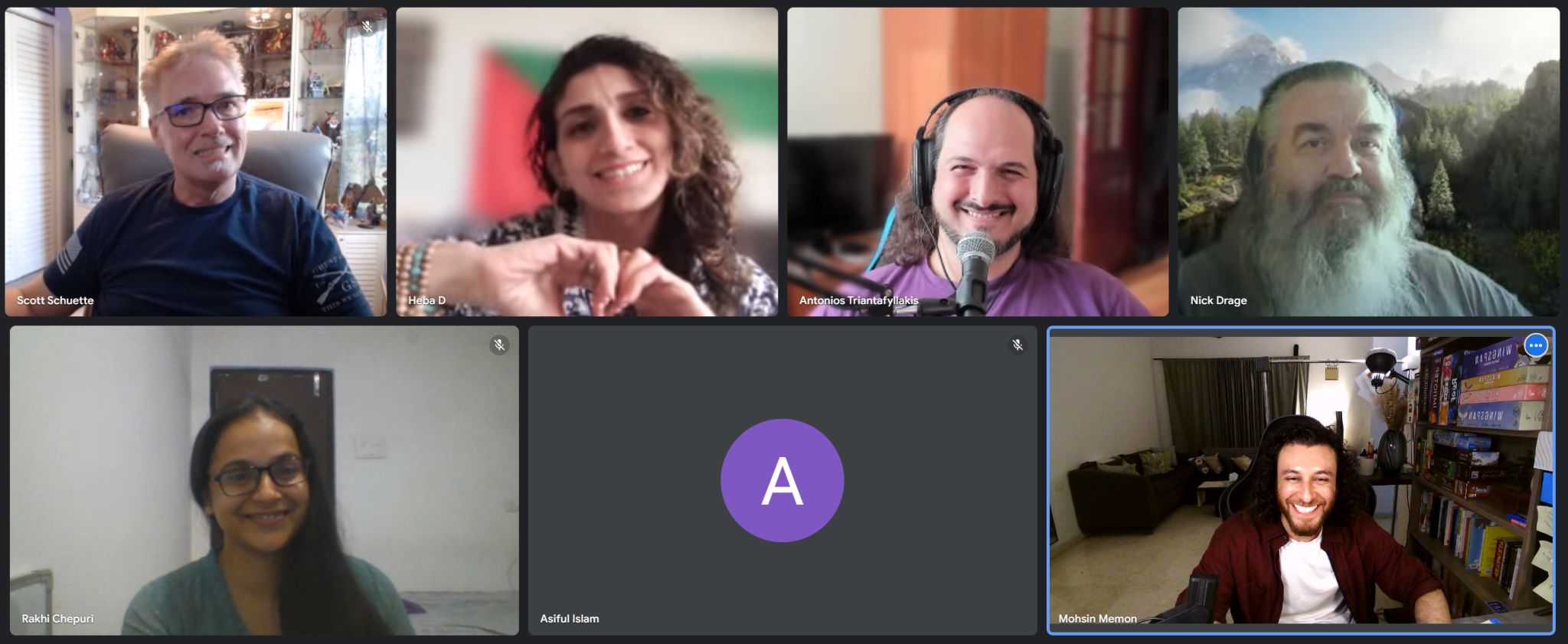
Post game screenshot.
I think this game is far less popular than it could be and should be. My thoughts around this game deserve at least one dedicated post, in the meantime you can find out more about it on their main website.
Unnamed Hospital Game playtest
A relatively abstract simulation of running a hospital, the first play of this turned more into a discussion about how the game should be run, and what to include and avoid under tight deadlines. But also, inevitably for game designers, what the possibilities were for larger and more complex versions.
An excellent playtest in January 2025 of a game still in the conceptual stage. I expect to writing more about this in future.
Games Afoot Playtest
This was an online playtest of a forthcoming East Midlands Megagame - 1890s London, but where Sherlock Holmes or Dracula or similar characters might be involved.
I liked the relatively minimal mechanisms, where the interaction between players and their imagination, and what they bring to the game, was key.
It was enjoyable to play, a great turnout for a playtest, and as always it’s good to experience adults being willing to imagine and play, and willfully running with an idea without question.
Watch the Skies 2040 playtest
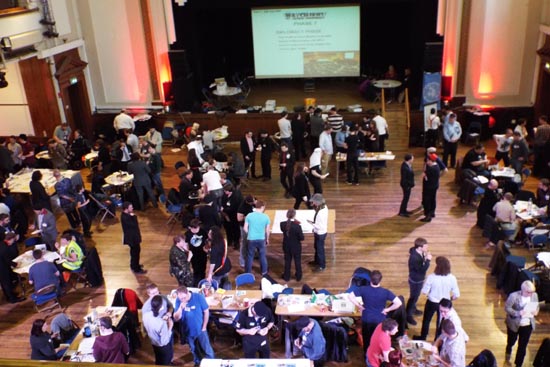
Watch The Skies, putting the mega into megagame.
This is the latest version of the famous megagame, with some innovations for the next version. This was played in a hybrid mode, that worked well, although synchronisation in-person and online resource counters was a struggle. Thankfully as part of being Control for that I was managing experienced players, so they instinctively managed their own resources anyway.
Without giving too much away as I expect this to be popular in-person, I also liked the innovations that made the aliens more alien, I think that’s a really interesting idea to bring out in this kind of game - just the inability to understand or communicate with what you’re interacting with, and having to figure out how to manage that. Depending on format I can see there being multiple alien teams in future, with or without the knowledge of the earth teams.
If you’re familiar with the famous megagame keep an eye on the Stone Paper Scissors website for details.
Place of Safety playtest
Another emergency services themed game. Just enough mechanics to this one, as play mainly depended on the facilitator’s knowledge.
We were assigning emergency services resources to emerging issues in a metropolitan area. Relatively minor, an car accident, a house fire, that kind of thing. It was an impressively simple game, and well run by the single facilitator, so we were able to play it twice. Doing so taught us so much so quickly, for example the first response to an emergency is to check you have the necessary information, and to check your options - e.g. those six people who need emergency accommodation, are they fine being split up into pairs to fit in your available spaces? They’re people, not numbers.
Don’t do everything at once, keep some resources in reserve, see how a situation develops ( for example a fire ), or see if the first on the scene report different details to the report that caused them to be sent. For example, the first responders communicate that it’s sixteen people who need help, not six.
Also within the Chatham House-esque rules of a playtest it was good to see the tension that isn’t often discussed in mere exercises or walkthroughs, for example the difference in aims between the Unitary and County Councils. Not only does this add a necessary degree of realism, but that friction is a key component of the realism of these games in any format.
I particularly enjoy playing these games online because they’re a great incentive to look up information online and practically learn how parts of the world work. For example, if you’re using a real world location, then which agency actually runs social services? What’s the local geography? If there’s a fire being portrayed its not an abstract problem, what else might it affect, for example how close is it to the main bus station? Which way is the wind blowing, and so which roads are obscured or unsafe because of smoke?
Water Water Everywhere playtest and discussion
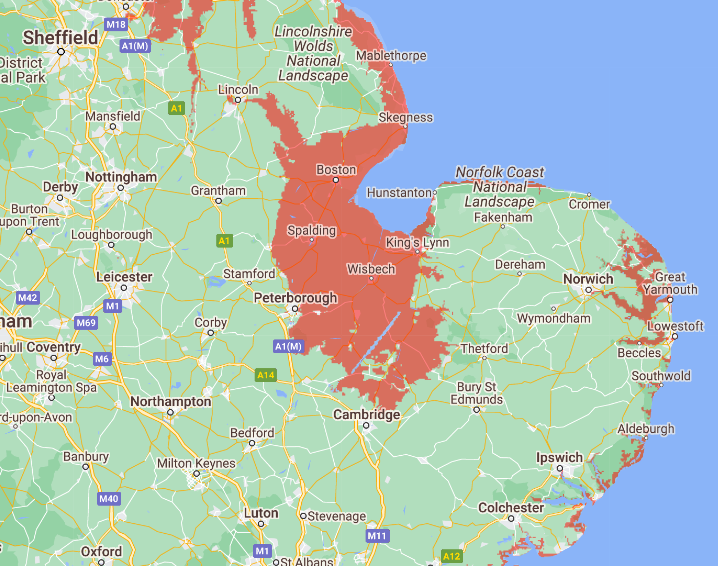
Interesting times ahead.
Something I’m co-designing on East Anglia being flooded, and how the UK Government could respond to that. There’s a write-up here, we’ve got a lot of work to do, after making some big decisions on which direction we’re taking it in. I should, probably, resist taking it in all the directions I can think of. Splitting it into several versions will multiply that amount of work to do, but we’ll see.
Recreational Games that were alright, but not for me.
Bells Hells
From Darrington Press: “In this cooperative card game, assemble the Bells Hells adventuring party of Critical Role Campaign 3 to pull off a daring heist. You’ll aim to play your Crew cards strategically as a team, hoping to exceed the value of the treasure you’re pursuing without going over 21. Each Crew card bears gorgeous art of the teammate, the card’s numerical value, and an ability, such as Chetney’s ability to be played as either a 6 or a 9. Play is quick, with gameplay lasting around 20 minutes, and you can play it with up to 4 players, including a solo mode.”
As someone put it on BoardGameGeek, it’s “blackjack with powerups”. It’s an interesting little game, but maths heavy, and feels like it depends more on luck than strategy. The theme is definitely tacked on, especially with the Critical Role branding. Due to my interest in professional games I’m interested in a theme and then how you reflect that in mechanics, but for this the theme is definitely a light covering over the game. For example, you put characters together for a heist in this game, but there’s more than one copy of each card and therefore more than one of each character… so, are they clones? Also the players, who are working together to make the heist work, can’t reveal who they’re putting forward for the heist because… because they can’t.
I’m being particular, but heists are such good stories yet there’s no story here, just maths.
Reynatis
Played the demo on the Switch, you can get a feeling for the gameplay from the trailer here.
For me, it looks like open world but actually it’s too linear, too twitchy6 while needing you to manage your own camera view, and in one of those cities that’s meant to be alive but is actually dead, reminiscent of walking through GTA 3 or 4, where - on my consoles at least - a busy street has ten cars on it.
Also, as a turn based game, very much in the JRPG culture, it’s not a game for me, rather than inherently bad.
Thought provoking recreational games
Pocket Sports Football
A very small dice game presenting American Football, but very very abstractly. You can see details about the game here: https://pocketsportsgames.com/products/pocket-sports-football
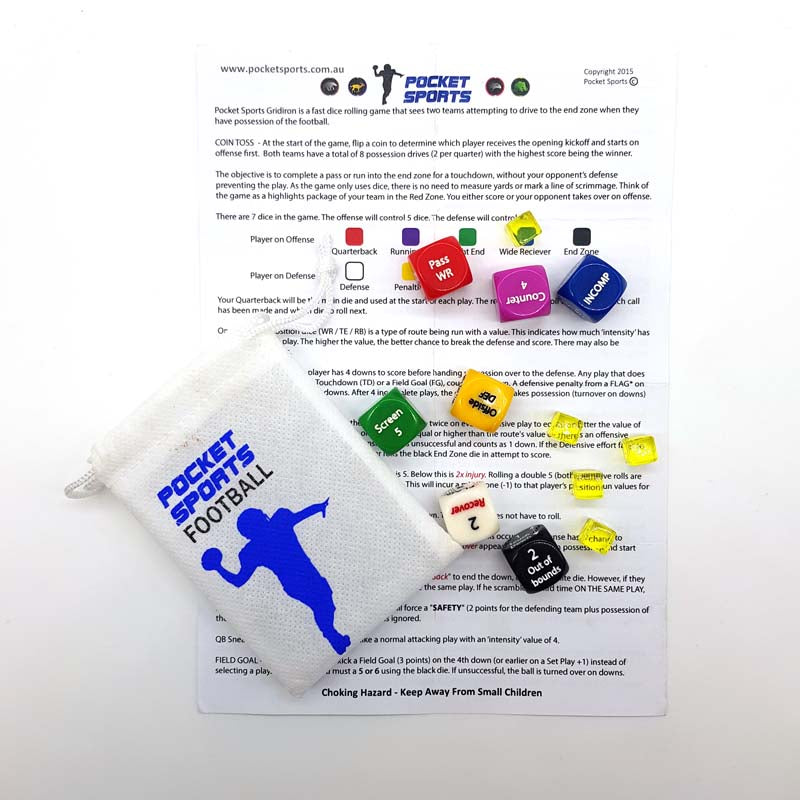
Pocket Sports Football.
As an example of gameplay, the one game I’ve played so far, the Vultures versus the Rabbits:
- Vultures start, go “four and out”, their drive ending on a missed field goal.
- Rabbits first play is a touchdown pass to their Tight End, with the extra point they go 7-0 up.
- Vultures go four and out again, with another missed field goal.
- Rabbits score on a touchdown pass to their Wide Receiver, with the extra point they go 14-0 up.
Of course at this point the Vultures can only tie the game if the Rabbits fail to score. The very short rules don’t includes any details for overtime.
- Vultures finally put points on the board, their WR scores a touchdown, it’s 14-7 to the Rabbits.
- The Rabbits fail to score in the third quarter.
- Despite three defensive penalties the Vultures fail to score, meaning the game is essentially over.
- The Rabbits finish the game with a score by their Running Back, fail on the two point conversion, winning the game 20-7.
It’s a cute little game, but entirely luck based. It’s crying out for some really simple play calling rules, just to give the players some agency, and to make it more possible for a team to come back from behind. So far any thoughts I’ve had around that are too complex, but we’ll see if I can come up with anything.
NFLOPOLY Junior
A present, considering my interest in somehow making Monopoly work as a game, and the NFL.
Good:
- The game finishes after the first person runs out of money, removing the “watching other people play” problem.
- The die is very square… so difficult to lose, but difficult to roll.
- The game is very well made, so will withstand being played repeatedly, or by children.
- I like the flags and SuperBowl idea, which formalises a common house rule that I think is common in the US. Where a standard board has “just visiting” and “go to jail” corners, in this version if you land there then the money goes into a Super Bowl fund in the middle of the board, and if you land on the Super Bowl, which is where Free Parking would normally be, you get all that money.
Bad:
- Players are forced to trade if they land in a couple of spaces on the board, so if there’s two of you playing then the properties you hold are just swapped and reswapped.
- Players can’t trade the properties if they hold all of the relevant ones, so they’re forced to trade useful cards in this case.
- Some of the rules were unclear rules, which isn’t ideal for a game aimed at children. For example does the “gear”, a reference to sports equipment occupying the spaces normally occupied by Railway Station, count as a set and therefore if you have all of them do you have a monopoly?
F-Zero 99
Another example of Nintendo “multi-playerising” classics, which they’ve done before with Tetris, Pacman, and I think Mario. Interesting idea, and the “99” multi-player format works better here than with those previous two. 99 racers at once is particularly impressive, it feels like it worked in real time with no lag or network congestion.
Nintendo life have a good summary; and if it appeals to you their strategy tips are useful.
Quick reviews of other small games
A Building Full of Cats - a lovely relaxing “found object” game, no timer, no pressure - if you want to relax in front of the TV, but not by watching that old Steven Seagal movie that happens to be on, this is a nice gentle game to play. An indie game in the best possible way.
Backgammon - due to hackgammon being discovered by a friend, I started playing on this: https://www.247backgammon.org/. Playing against “hard” seemed suspiciously lucky, but it’s an interesting game, and quick to learn… I need to research if this is a “solved” game.
It’s Kooky - Lovely hidden object game with a great art style.
Legend Bowl - a weird combination of very complex stats and playcalling with 16bit graphics - which is fine for me as a concept. But I struggled to understand what the playcalls were, and also to make them in time. As it’s a single player game, why not have an option to disable a playcalling clock and let me think?
My Little Universe - A fun little Switch game. You’ve crash landed on a planet and need to gather resources to leave, while fighting ghost pirates. But while it’s a cozy grind, the grind got too much for me after a while.
Quadroids - A really interesting idea of controlling several screens at once in this puzzle platformer, and I like people trying out game designs that are intentionally frustrating. But this one was just not fun, and I think a non-violent theme would have worked much better.
Save Room - a small game based entirely on inventory management mechanics from games such as Resident Evil. I’ve managed a couple more levels of this.
Subbuteo Shuffle Card Game - The summary on BoardGame Geek summarises this nicely. It’s a simple card game with a “Rock Paper Scissors” idea of trying to play a card your opponent can’t cover. Very easy to learn and play.
Suika Game - simple fun and moreish game of dropping fruit into a container, when two fruits of the same type touch each other they become a different bigger fruit, eventually becoming a melon. It’ll make sense if you look it up. But can be frustratingly difficult, with too much depending on which random fruit you’re given near the end, plus the gravity seems weird and unhelpful. Also they took the Halloween theme away. Boo.
The Choice of Life: Middle Ages - A fun distraction, you can see more here. I found it vaguely frustrating as you make choices based on very little information, and it appeared that your choices weren’t that impactful to the overall storyline.
Yes, Your Grace - I mean it’s worth checking out the demo if you’re on the Nintendo Switch, if the medieval fantasy subject matter interests you. But I didn’t feel like my decisions made too much of a difference to where the story was going, while also there being no help in tracking all the issues you were dealing with. And obvious ramifications of decisions, once you understood the wider context, weren’t explained in advance. Maybe it deserved more effort than I was willing to put into it?
Epilogue
I also ran a couple of Grant Howitt one-shot games, Pig at a Wedding and Honey Heist, for a small online group. I need to try more one-shots, both with those players, and I think it would be a good way to get different groups of people together.
I also half-designed something with Stephen Anderson, I aim to be better this year at duplicating context between different social media.
I’d like to play more games, but I think I say that every time. I’m not doing badly for professional playtests though, especially as I’m sure there was more than listed above.
-
In my weeknotes terms a “week” is the time period between when I last wrote my weeknotes and now. ↩︎
-
Bunch of Guys Sat Around a Table. Usually used in a derogatory way to refer to the kind of meetings or light exercises where experts sit around a table, and decide that a product or a strategy or a plan is fine, unchallenged. ↩︎
-
It’s a very rough definition, but the Black Hat in this system is someone who is critical or cautious, focused on the impact or risk of decisions. ↩︎
-
The Control Team are the facilitators of a megagame, they run the game for the players, and adjudicate the outcomes of the players’ decisions. ↩︎
-
By “hybrid” I mean that some players are together in-person, while others are online. For game design I think that gives us a lot of interesting options that are otherwise unavailable. ↩︎
-
By twitchy I mean that success is based on having quick reactions, rather than anything more thoughtful. ↩︎
